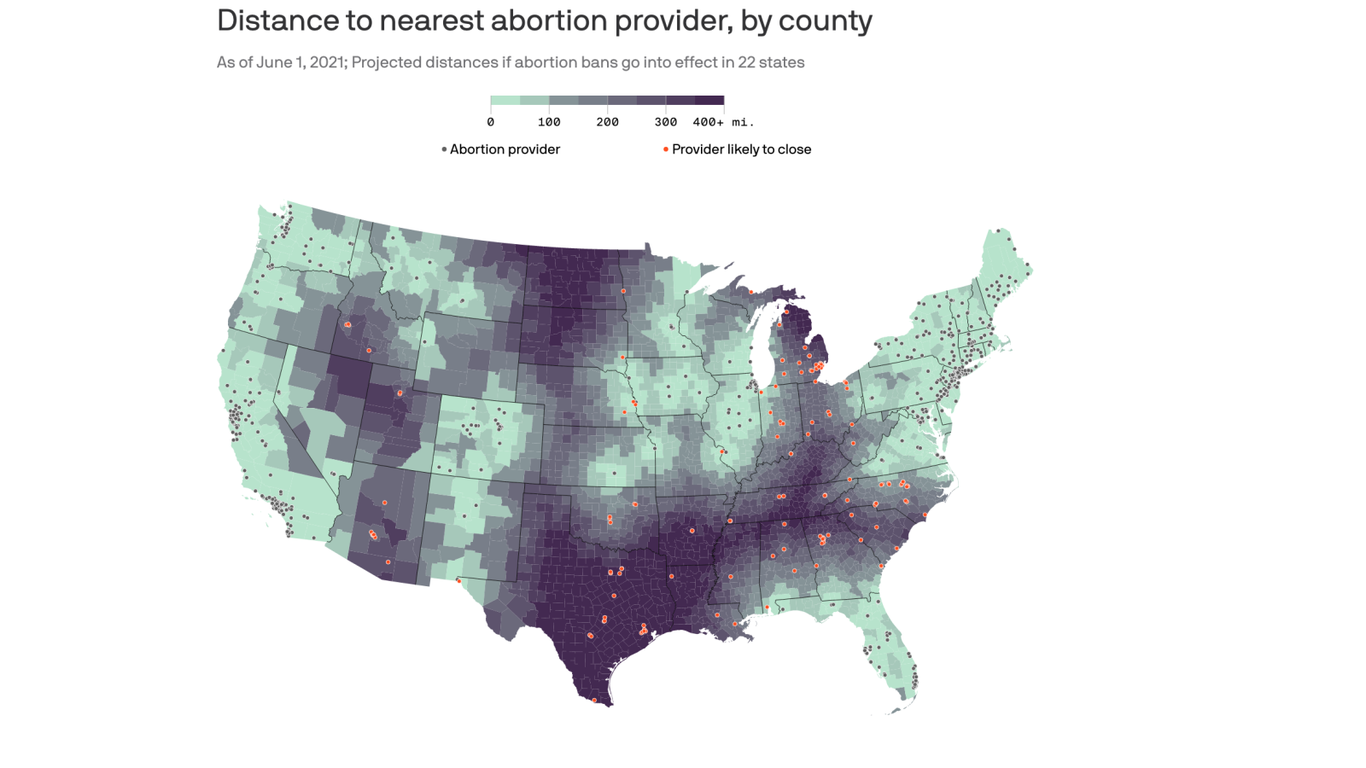What the Supreme Court’s docket means for Texas
[ad_1]
Austinites may soon have to travel more than 875 miles – one way – to perform an abortion.
Driving the news: The US Supreme Court on Wednesday appeared likely to weaken the right to abortion and possibly states to ban the process altogether.
The big picture: Without Roe, abortion laws and access would vary from state to state. Texas is one of 12 states that would immediately ban abortions if the landmark 1973 case is repealed.
- That would be too be true in Oklahoma, Louisiana, and Arkansas – three of the four states that border Texas.
New Mexico is the only neighboring state that has codified the right to abortion.
With the numbers: If the Supreme Court flipped Roe versus Wade, the average American would have to travel about 200 miles to get to the nearest abortion provider, compared to the current average of 25 miles, according to a database from the Myers Abortion Facility.
- And the proportion of people who live more than 300 kilometers away from a provider would increase from 1% to 29%, according to the database.
- Also the top 10 The furthest trips to an abortion provider are any Texas county. Cameron County, on the southern tip of Texas, would be the start of the country’s furthest drive, or 831.2 miles, to Santa Teresa, New Mexico.
Remarkable: The drive from Austin to an abortion clinic in Santa Teresa, New Mexico is 589 miles.
- According to a study by the University of Texas’ Texas Policy Evaluation Project, waiting times in clinics in New Mexico were up to 20 days in September due to its own restrictive abortion law.
- “These waiting times can push pregnant people past their drug discontinuation line or into the second trimester of pregnancy when procedures are at a slightly higher risk of complications than those performed earlier in the pregnancy,” observed the UT researchers.
- “Those able to travel out of the state face economic hardships that can cover travel, housing, lost wages and childcare costs in addition to their abortion, which together could total well over $ 1,000 “they added.
The bottom line: “A SCOTUS ruling on Mississippi would put a lot of additional pressure on facilities where abortions are still accessible,” Kari White, who heads the Texas Policy Evaluation Project, told Axios.
[ad_2]
https://www.axios.com/local/austin/2021/12/02/supreme-court-abortion-roe-wade-texas

